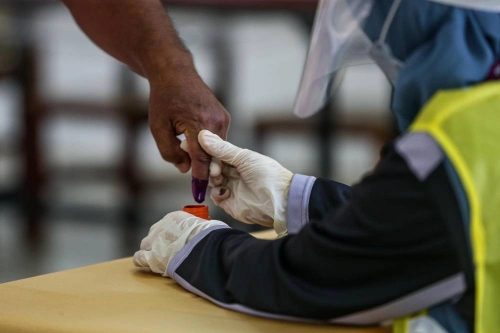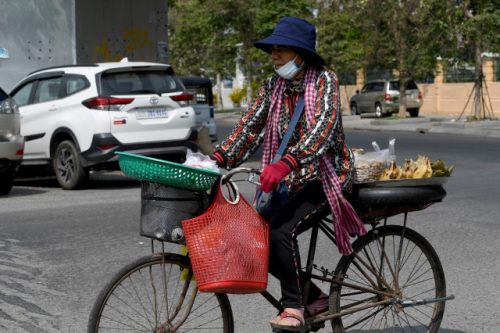
“Lowering voting age does not ensure political participation”
On 14 September 2022, an op-ed by Dr. James Gomez, Asia Centre’s Regional Director, was published by Malaymail. In this article, Dr. James warned that lowering the minimum voting age is not enough to ensure informed youth political participation. Young voters need political education and practice opportunities to understand and internalise the principles of democracy.

“Political competition to intensify disinformation in GE15″
On 7 September 2022, an op-ed by Dr. James Gomez, Asia Centre’s Regional Director, was published by the Vibes. In this article, Dr. James anticipates that the upcoming general election (GE15) in Malaysia will see youth and other voters subjected to intense disinformation as a result of competition among multi-party coalitions and the ineffectiveness of current anti-disinformation measures. Dr. James discussed the various types of political disinformation circulated during past elections in Malaysia and drew recommendations for stakeholders in Malaysia so as to ensure electoral integrity.

“Maintaining One-party Rule in Singapore with the Tools of Digital Authoritarianism”
Dr. James Gomez, Regional Director, Asia Centre, contributed to the the 33rd issue of Kyoto Review of Southeast Asia on the rise of digital authoritarianism in the region. In the article titled “Maintaining One-party Rule in Singapore with the Tools of Digital Authoritarianism”, Dr. Gomez outlines how the Singaporean political elite has effectively used oppressive internet and digital legislation to sideline and intimidate civil society activists, journalists, and opposition figures, as a means to maintain their system of one-party dominance.

“The National Internet Gateway and the Future of Digital Authoritarianism in Cambodia”
An article authored by Dr. Robin Ramcharan, Executive Director, Asia Centre titled: “The National Internet Gateway and the Future of Digital Authoritarianism in Cambodia” was published in the 33rd issue of Kyoto Review of Southeast Asia on the rise of digital authoritarianism throughout the region. Particularly for Cambodia, Dr. Ramcharan’s article focuses on the advent of Cambodia’s ‘National Internet Gateway’ (NIG), a new system for controlling internet traffic that should lead to an increased level of surveillance and self-censorship in the country.

“The strategic imperatives driving ASEAN-EU free trade talks: colliding values as an obstacle”
On 11 August 2022, an op-ed by Dr. Robin Ramcharan, Asia Centre’s Executive Director, was published by Instytut Boyma in Poland. In this article, Dr. Robin argues that the recent revival of free trade agreement negotiations between ASEAN and EU blocs – suspended in 2009 – is driven by both regions’ strategic imperatives. However, a formidable obstacle that looms ahead of the ASEAN-EU FTA is the EU’s pursuit of value-based diplomacy in all of its external relations, which contrasts with the vaunted ‘ASEAN way’ that engenders avoidance of human rights-oriented commitments in its external relationships.

“Journalists tell of growing Asian inequality”
An op-ed based on the 2021-2022 Journalism for an Equitable Asia Award, jointly convened by Asia Centre and Oxfam International, was published in Cambodianess on 13 April 2022. The two authors – Dr. James Gomez, Regional Director of the Centre and Mustafa Talpur Asia Regional Advocacy & Campaigns Lead, Oxfam – pointed to the worsening inequality during the COVID-19 pandemic, especially of the marginalised communities across the continent. Called to attention by Dr. Gomez and Talpur are journalists working to shed a light on these realities, who require support and encouragement.

“Harrowing tale of a disappeared”
On 4 February 2022, Dr. James Gomez’s book review piece on “Silencing Of A Laotian Son – The Life, Work And Enforced Disappearance Of Sombath Somphone” is published in the Bangkok Post. Reviewed by a fellow Singaporean, the book by Somphone’s Singaporean wife, Ng Shui Meng, is a record of her husband’s kidnapping and struggles against injustice. The book proves yet again the prevalence of enforced disappearances, especially in Southeast Asia, and the unimaginable fate that victims face. It signals that actions are needed to prevent enforced disappearances, to hold the perpetrators to account, and to seek justice for the victims and families.
